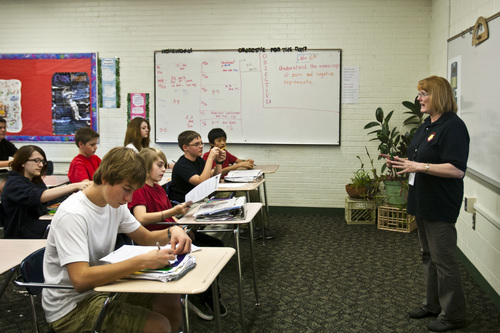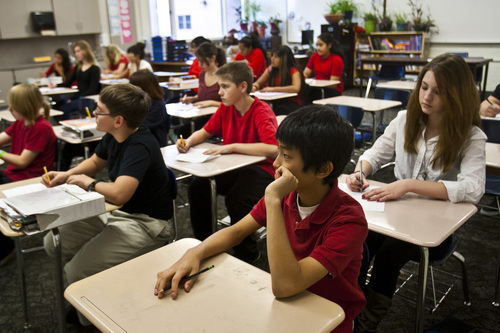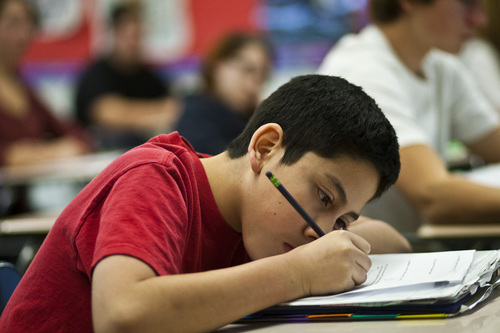This is an archived article that was published on sltrib.com in 2013, and information in the article may be outdated. It is provided only for personal research purposes and may not be reprinted.
Low-income, Hispanic, Asian and Pacific Islander eighth-graders in Utah made big gains in reading this year, bumping up Utah's score on The Nation's Report Card.
Eighth-graders overall, however, performed about the same in math as they did in 2011, and on par with the national average.
Fourth-graders, likewise, were at about the national average in math and reading and showed little improvement in the two years, according to National Assessment of Education Progress (NAEP) tests.
Every two years, schools test a sample of students in fourth and eighth grades so the U.S. Department of Education can track achievement in each of the states.
In Utah, roughly 3,000 students in fourth grade and 3,000 eighth-graders took the tests in math, and a similar number took the reading tests.
This year's gain of three points in the Utah eighth-grade reading test score average — from 267 to 270 on a zero to 500 scale — was largely due to improvements in low-income and ethnic minority students' achievement.
Hispanic students' reading scores went from 247 to 256 and Asian and Pacific Islander student scores rose from 257 to 264. Average scores for black and American Indian students were not reported because too few took the test.
Eighth-graders from low-income homes also saw big gains, scoring 260 on reading, up from 254 two years ago.
Mark Peterson, spokesman for the Utah Office of Education, said the results show that focused, individual attention on kids who struggle with reading is beginning to pay off.
"Utah is a lot more diverse than it used to be and it's a matter of training teachers to deal with the new classroom," he said. "We're getting better at interventions and focusing them on the populations that need them."
White students comprise 77 percent of Utah's eighth grade population; Hispanics are 15 percent and Asians and Pacific Islanders are 4 percent. Thirty-seven percent of eighth-graders are from low-income homes, which means they qualify for free or reduced price lunches.
Utah's eighth-graders scored 284 this year in math, up from 283, although the National Center for Education Statistics considered that bump insignificant. The national average mirrored Utah's at 284.
In math, Utah's fourth-graders scored exactly the same — 243 — this year as they did two years earlier. Nationally, fourth-graders averaged scores of 241.
In reading, Utah's fourth-graders scored 223, up from 220 in 2011, a gain again considered insignificant by the center. The national average was 221.
Twitter:@KristenMoulton









